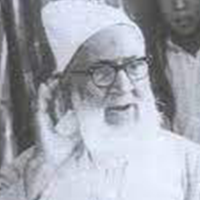- Index of Books 188827
-
-
Book Categories
-
Activities75
Children's Literature2089
Drama1036 Education388 Essays & Profiles1558 Fiction1784 Health109 History3606Humorous760 Journalism220 Language & Literature1979 Letters824
Life Style29 Medicine1053 Movements299 Novel5063 Political375 Religions5048Research & Criticism7447Short-story3035 Sketches293 Social issues121 Sufism / Mystic2296Text Books572 Translation4621Women's writings6310-
Book Categories
- Bait Bazi14
- Catalogue / Index5
- Couplets70
- Deewan1491
- Doha53
- Epics106
- Exegesis212
- Geet68
- Ghazal1391
- Haiku12
- Hamd55
- Humorous37
- Intikhab1680
- Keh mukarni7
- Kulliyat725
- Mahiya21
- Majmua5421
- Marsiya405
- Masnavi898
- Musaddas62
- Naat613
- Nazm1326
- Others83
- Paheli16
- Qasida203
- Qawwali18
- Qit'a74
- Quatrain307
- Quintuple16
- Rekhti13
- Remainders27
- Salaam36
- Sehra12
- shahr-Ashob, Hajw, Zatal Nama20
- Tareekh-Goi31
- Translation74
- Wasokht29
Profile of Abdul Majid Dariyabadi
Pen Name : 'Abdul Majid Dariyabadi'
Real Name : Abdul Majid Dariyabadi
Born : 16 Mar 1892 | Barabanki, Uttar pradesh
Died : 06 Jan 1977 | Barabanki, Uttar pradesh
Relatives : Abdur Raheem Kidwai (Grand Son)
LCCN :n82060207
Maulana Abdul Majeed Daryabadi is a famous writer and journalist of our time. Philosophy is his favorite subject. He also translated books on philosophy and wrote books himself. His style of writing was also viewed with respect.Abdul Majid was born in 1892 in Barabanki district of Daryabad. This is where elementary education took place. This is where elementary education took place. He learned Urdu, Persian and Arabic at home. Then he enrolled in a school in Sitapur and passed the matriculation examination. After that he went to Lucknow for higher education. His father was a deputy collector and the environment at home was conducive to higher education.From the earliest days of his student life, he developed a passion for reading. He also started writing essays from his student days. These articles were published in the good magazines of the time.
After the death of his father, earning a livelihood became his foremost concern. At first, he wanted to earn a living from essay writing, but he did not succeed. Then he turned to a job, but no job proved to be long lasting. Eventually, he moved to Hyderabad. There he gained fame in the academic circles by writing his famous book "Falsafa-e-Jazbaat". Up to that time very little had been written in Urdu on the subject of philosophy. He himself wrote books on the subject of philosophy and also translated some important books. Conversations Berkeley is his main achievement.
Maulana also showed his mettle in journalism. He edited several Urdu newspapers. Among them are Hamdam, Hamdard, Haqiqat. He also published his own newspaper under the name of "Sadiq".
Anyone who peruses his writings at once encounters Maulana’s command over the language. His translations seem so natural that they give the impression of true authorship. His language is simple, smooth and fluent. Despite this, there’s an effort to maintain the beauty of the language. Sometimes he uses colloquial language, sometimes he asks questions in the middle of the sentence and answers it, too.Source : Tareekh-e-Adab-e-UrduTagged Under
Authority Control :The Library of Congress Control Number (LCCN) : n82060207
join rekhta family!
-
Activities75
Children's Literature2089
-


